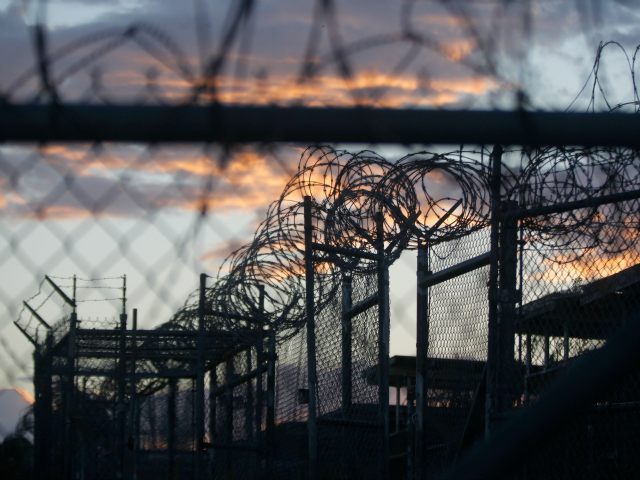WASHINGTON, DC — U.S. Secretary of State Rex Tillerson told American lawmakers in a letter this week that his department will abolish many of the nearly 70 U.S. special envoy positions, including the ones charged with shutting down the U.S. military prison in Guantánamo Bay, Cuba, and dealing with the Iran nuclear deal.
“Today, nearly 70 such positions exist within the State Department, even after many of the underlying policy challenges these positions were created to address have been resolved,” wrote the secretary.
The move is consistent with the president’s pledge to keep the Guantánamo facility, known as Gitmo, open and send newly captured jihadists there.
In a letter to Congress, Tillerson indicated that he believed the State Department could “better execute its mission” by integrating some positions, highlighting concerns that the current system is diluting the government’s effectiveness by fueling redundant power centers, reports the Associated Press (AP)
The letter came in response to legislation passed by the Senate Foreign Relations Committee in July that focused on the proliferation of special envoys.
Tillerson revealed that only 30 (about 45 percent) of the 66 current envoy or representative positions would remain.
Of the other 36 positions, State will abolish nine, integrate 21 into other offices, merge five with other jobs, and transfer one to the U.S. Agency for International Development (USAID), the federal government’s foreign aid component.
Among the positions that Tillerson will eliminate under the plan are special envoys for Afghanistan-Pakistan; disability rights; climate change; the Iran deal, which the president has repeatedly objected to; the Arctic; Syria; Myanmar; Libya; Haiti; Sudan; and South Sudan, though regional offices will assume those portfolios.
The vacant position for North Korea envoy will not be filled.
AP explains:
In each case, the envoys’ staff and their budgets will be absorbed by the office taking over their functions. That shift will free up significant funds that Tillerson can draw upon as he restructures other parts of the agency, said a State Department official, who wasn’t authorized to comment by name and requested anonymity. For example, merging the cyber envoy into the broader Economic and Business Affairs bureau will boost the latter’s budget by $5.5 million.
The revelation about the future of special envoys comes after the State Department confirmed this month that the Trump administration had requested $1.2 million to operate the now vacant office of the agency’s special envoy for shutting down the Guantánamo prison, known as the Gitmo closer, as reported by the Miami Herald.
At the time, a U.S. State Department spokesperson told Breitbart News on condition of anonymity that Tillerson was evaluating the use of all special envoys within the department, adding that the focus of the Gitmo closer would potentially change.
In a rare show of bipartisanship, lawmakers from both parties, echoing think tanks and even the diplomats’ association, have urged State to absorb some of the numerous U.S. envoys and special representatives into related offices to help diminish the redundancies within the department’s infamous bureaucracy, notes AP.
“[T]he idea [of cutting down the special envoys] has attracted new scrutiny amid the Trump administration’s plans to drastically cut the State Department’s budget and concerns that Trump was eschewing the promotion of American values overseas,” points out the news agency.
“While State Department officials stressed that changes to the flow chart don’t necessarily signal a change in priorities, in some cases the policy implications are clear. Elimination of the Guantánamo closure envoy dovetails with Trump’s plans to keep the prison open. The president has pulled the United States out of the Paris global climate deal and threatened to do the same with the Iran nuclear deal,” it adds.
Sen. Bob Corker (R-TN), the panel’s chairman, welcomed Tillerson’s decision “to responsibly review the organizational structure of special envoys.”
Given that U.S. law has mandated the formation of some special envoy positions, the Trump administration is expected to request assistance from lawmakers to repeal those requirements.

COMMENTS
Please let us know if you're having issues with commenting.